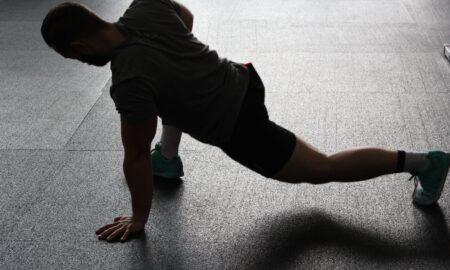You've heard the mantra: If you eat fewer calories than you expend, you'll lose weight; if you eat more, you'll gain weight. And it doesn't make a helluva difference what you eat. That's because a calorie is a calorie is a calorie. Or is it?
In my opinion, hell, no. First of all, consuming protein has a much higher thermic effect than eating carbohydrates or fat. And carbs have a higher thermic effect than fat.
But there's another piece of that puzzle that the bodybuilding world seems to have a better handle on. We know that when you drop calories to lose fat, you up your protein intake and decrease your carbs. That method seems to work. In fact, two studies from two independent labs have shown that 'it's the carbs, stupid!'
Study 1. In the first study researchers took 20 normal men and had them go from their habitual diet (17 percent protein, 47 percent carbohydrate, 32 percent fat) to a ketogenic diet (30 percent protein, 8 percent carbohydrate, 62 percent fat). They remained on that diet for six weeks. Now, keep in mind that the ketosis seen in normal people on a low-carb diet is not the same as diabetic ketoacidosis (see 'Ketosis vs. Ketoacidosis,' below).
The researchers found that, despite the large amount of fat, the ketogenic-diet subjects had a decrease in serum triglycerides as well as a drop in postprandial lipemia (amount of fat in the blood after eating) and a drop in serum insulin. Additionally, HDL cholesterol (the good one) increased in the ketogenic subjects. But the best news of all is that the subjects following the low-carb diet had a significant increase in lean body mass (+2.4 pounds) and a drop in fat (-7.5 pounds), and they were accompanied by an increase in thyroxine (T4) hormone.
So, in the men eating a low-carbohydrate diet, blood markers of health, metabolism and body composition improved.
Ketosis Vs. Ketoacidosis
When you severely limit your calorie or carb intake, exercise for a very long time or eat a lot of fat, your body breaks down fat and makes ketones. Your brain can use ketones for energy. Interestingly, ketogenic diets have been used to treat children with severe seizures; however, an oft-mentioned criticism of them is the possibility of extreme ketoacidosis. Well, it is true that ketone bodies are acidic, but the ketoacidosis that occurs in diabetics is not the same as what occurs in normal, nondiabetic individuals. Ketoacidosis occurs in type I diabetics when their blood sugar is out of control and they can't produce insulin. In normal individuals the body regulates ketone levels well enough to meet its fuel needs.
Study 2. Another study done with a group of normal young women (24-year-olds) began with a baseline diet of an average of 1,959 calories'50 percent carbs, 16 percent protein and 34 percent fat. They divided the women into two groups, both taking in the same number of calories (about 1,660). One group ate 41 percent carbs, 30 percent protein and 29 percent fat for 10 weeks, while the other ate 58 percent carbs, 16 percent protein and 26 percent fat.
You can predict that if they're eating fewer calories, they would lose weight, correct? Well, yes, but'and there's always a 'but'the nature of the weight loss was not the same.
The carbohydrate group lost a total of 15.3 pounds compared to a 16.6-pound loss in the protein group. 'Ya see! You lose weight no matter what'as long as you cut calories!' Whoa, Nellie. Let's look at the numbers as closely as you look at Christina Aguilera's belly button. The carbohydrate group lost 10.4 pounds of fat; the protein group lost 12.3 pounds of fat. And'drumroll, please'the carbohydrate group lost 2.7 pounds of lean body mass compared to just a 1.9-pound loss in the protein group.
So the ratio of fat-to-lean body-mass weight loss was better in the protein group. Let's face it: Losing weight is tough enough. Why exacerbate it by losing more lean body mass?
Another good thing found in the protein group was a significant reduction in blood triglycerides. Both groups decreased similarly in total cholesterol too. Furthermore, the carbohydrate group had higher insulin responses to meals and higher postprandial blood glucose levels. The protein group also reported greater satiety with their meals.
Something to think about. What's fascinating is that the protein group in study 2 did not follow a ketogenic diet, even though some would call that a low-carb diet; the ratio of that diet was actually a 40:30:30'carbs, protein and fat, respectively. The ratio of the diet in study 1 was 8:30:62. Both studies indicate that if you drop your carbs to 40 percent or less, it seems to improve body composition and markers of health (lipids, insulin and so forth).
The fact that thyroid hormone levels are likely to be better maintained on a lower-carbohydrate/higher-protein diet might contribute to a body-composition change. Also, we know that if you go on a low-calorie diet, it's helpful to eat more protein to help minimize the loss of lean body mass.
Moral of the story. Clearly, not all diets work equally for everyone. My recommendation is that you eliminate processed carbs and replace them with lean sources of protein if your goal is to improve your general physique and health. References
Volek, J., et al. (2002). Body composition and hormonal responses to a carbohydrate-restricted diet. Metabolism. 51:864-70. Layman, D.K., et al. (2003). A reduced ratio of dietary carbohydrate to protein improves body composition and blood lipid profiles during weight loss in adult women. Journal of Nutrition. 133:411-417.
Editor's note: Jose Antonio, Ph.D., CSCS, earned his doctorate at the University of Texas Southwestern Medical Center. He is a co-editor (with Jeffrey R. Stout, Ph.D.) of and contributor to Sports Supplements (Lippincott Williams & Wilkins), Sports Supplement Encyclopedia (Nutricia), Supplements for Strength-Power Athletes (Human Kinetics) and Supplements for Endurance Athletes (Human Kinetics). For more information visit www.supplementbooks.com. IM




















You must be logged in to post a comment Login